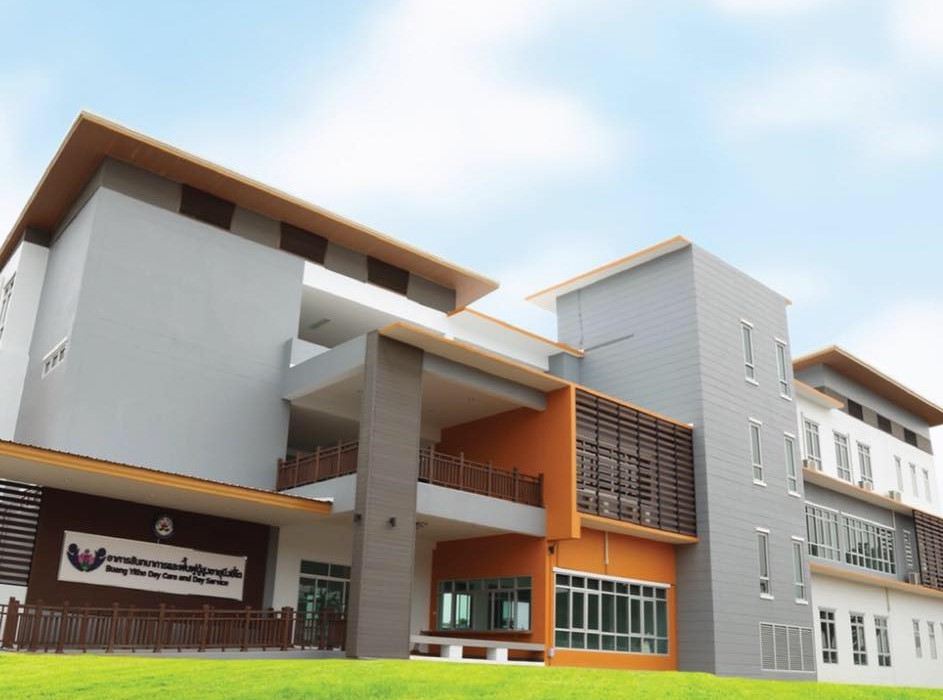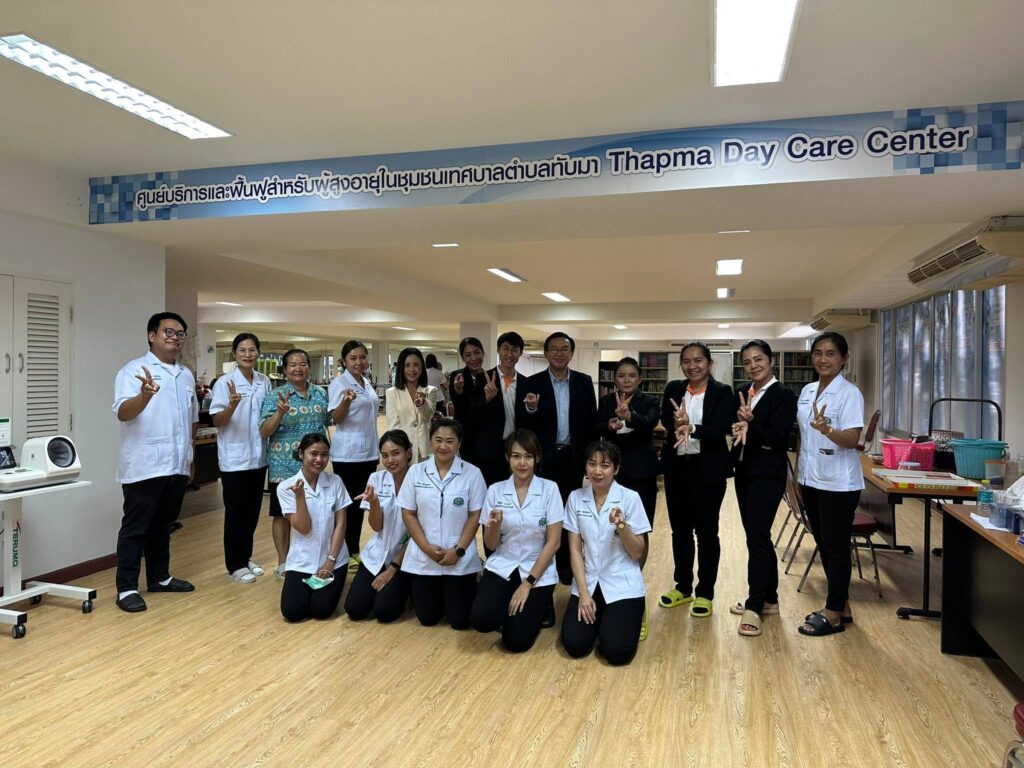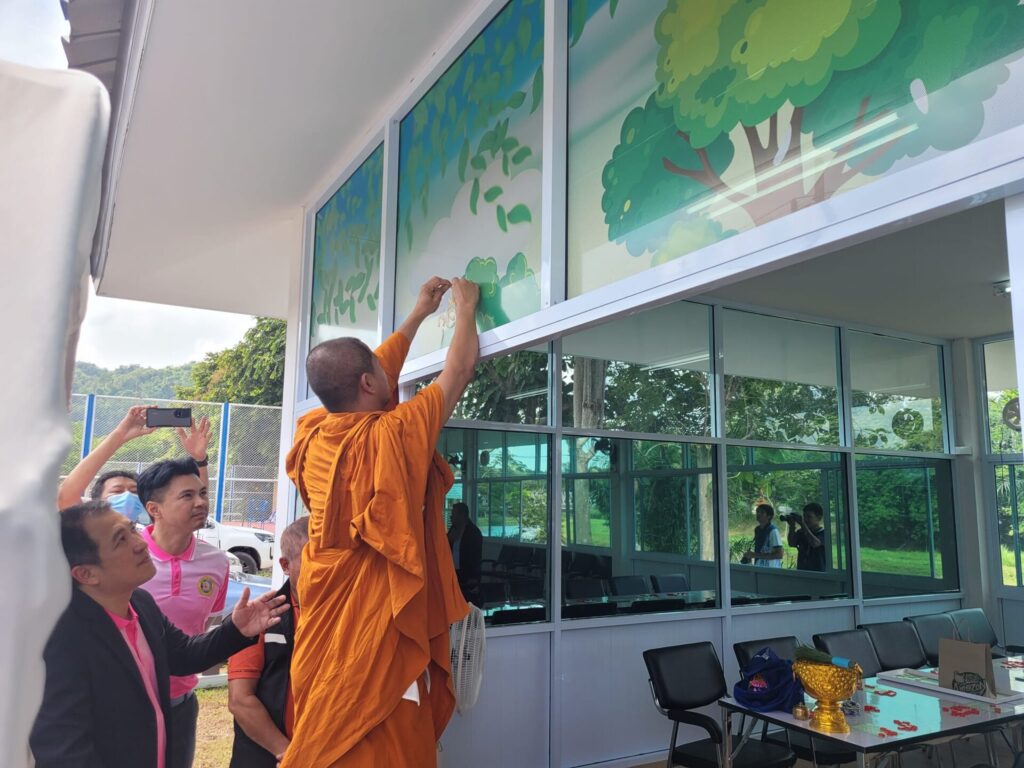What is the SMART & STRONG Project?
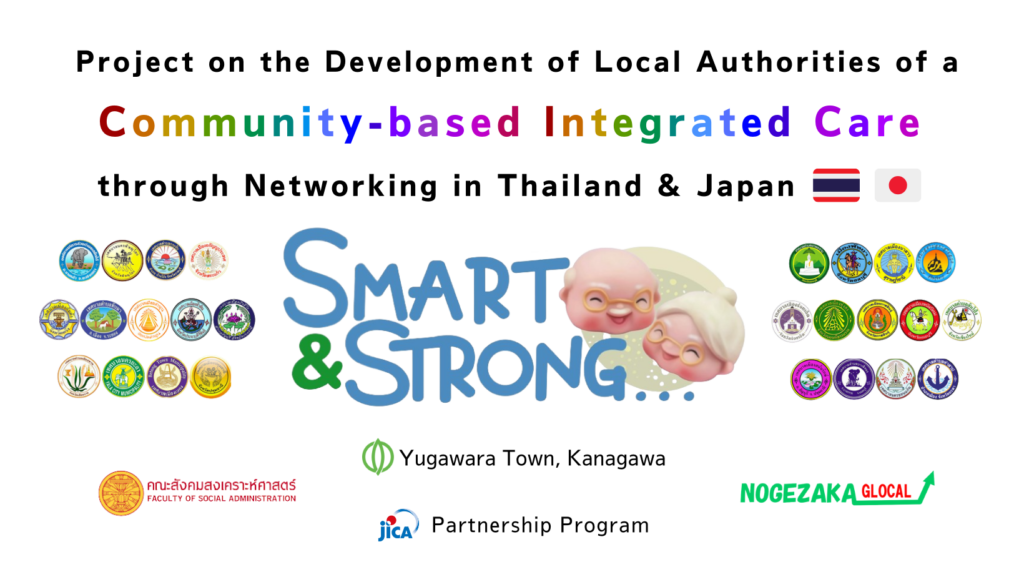
- NEWS Page: Recent updates on project activities (available in Japanese & English)
- ABOUT Page: Basic Profile of the SMART & STRONG Project
- NETWORK Page: Detailed and Formal Names of Collaborating Organizations
- Facebook, Instagram, & X/Twitter: Social Media of the SMART & STRONG Project
In both Japan and Thailand, the population is rapidly aging.
Under the circumstances, ‘Community-based Integrated Elderly Care’ is gathering further attention to pursue healthy aging of the population in communities where elderly citizens can continue spending their independent well-being lifestyles as long as possible so that it reduces the risks of chronic illnesses and disabilities needing long-term care. It also leads to decreasing the burdens, dependencies on assistance, and resource shortage for supporting the increasing elder population based on public cost finances and caregivers, including informal carers (family, relatives, etc.)
SMART & STRONG Project defines Community-based Integrated Elderly Care as ‘comprehensive community care in which various healthcare services such as medical care, rehabilitation, health & well-being promotion, life enhancement, and long-term care are implemented in an integrated manner.’ Conventionally in Thailand, health promotion, welfare care, and medical care have been carried out through vertically segmented administrative systems. On the other hand, this project seeks to integrate these different divisions into comprehensive initiatives at the community level (in each local authority) to establish sustainable socialized systems of elderly care.
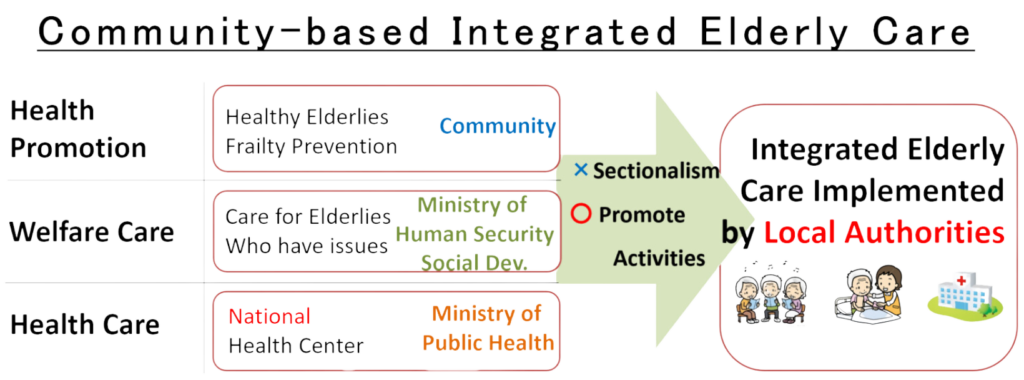
SMART & STRONG Project aims to promote this Community-based Integrated Elderly Care in Thailand with the framework of the JICA (Japan International Cooperation Agency) Partnership Program, and the project itself is run by Yugawara Town, Kanagawa Prefecture, Japan. Thailand is considered one of the frontrunners in rapidly aged societies in the world. As a middle-income country, this demographic shift reflects the advancements in social and economic development and health promotion in Thailand. However, it also poses new challenges to reform policies and initiatives to tackle the challenges facing the well-being of older persons. Based on the context, the Thai central government has policies on the national plan tackling population aging to utilize the potential of community care for older persons, including care by family/friends, neighbors, and community members such as paid caregiving volunteers or healthcare professionals employed by municipalities. In order to empower the community care for the elderly, this project encourages Thai local authorities to implement practices such as daycare centers, 'dementia cafe' activities, and community places led by residents for health promotion & life enhancement, etc., through their own ownership.
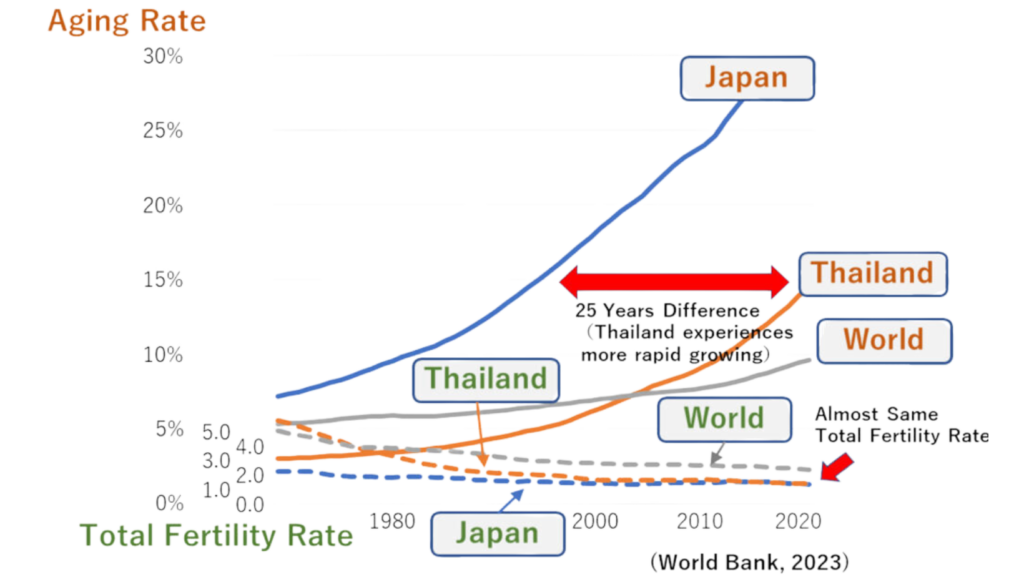
This project is based on the collaboration of various organizations/agencies. The project mainly creates ‘platforms’ for sharing knowledge, skills, experiences, initiatives, and resources (including human resources and technologies) on the know-how of long-term care, community-building & policymaking to help the elderly residents continue spending independent lifestyles in their homes, and support measures for people with dementia. Know-how to share is not limited to the healthcare field, but it is also related to various public policies and actual practices across disciplines (such as employment and incomes of senior citizens, central & local government’s public management, cost finances/management of budgets, public-private partnership with civil society & private business sectors’ activities, and implementation on ‘smart cities’ with innovation based on residents’ needs and digital transformation, etc.)
Network and Collaboration
- Please refer to the NETWORK page for detailed and formal names of organizations
The platforms consist of the networks of various organizations in Japan and Thailand, including local authorities (municipalities), central government ministries, agencies on international cooperation, universities/research institutions, private business sectors, and civil societies/NGOs. By building up the network, the SMART & STRONG project intends to offer meaningful platforms to share know-how with ensured quality and quantity. For instance, through proactive participation and collaboration within the networks, we have arranged different types of training opportunities, lecture sessions, seminars, and programs to visit and get hands-on experiences in the field of eldercare both in Japan and Thailand. In addition to that, through relationships with various collaborating organizations (such as university and business sectors), the project intends to get chances to appear in Media and Academic presentations so that this project can get more attention, including from local authorities in Thailand, which are considering engagement in this project's Network to promote Community-based Integrated Elderly Care. By introducing the achievement of each local area's initiatives, this project empowers/encourages Thai local authorities' staff members and residents for further development.
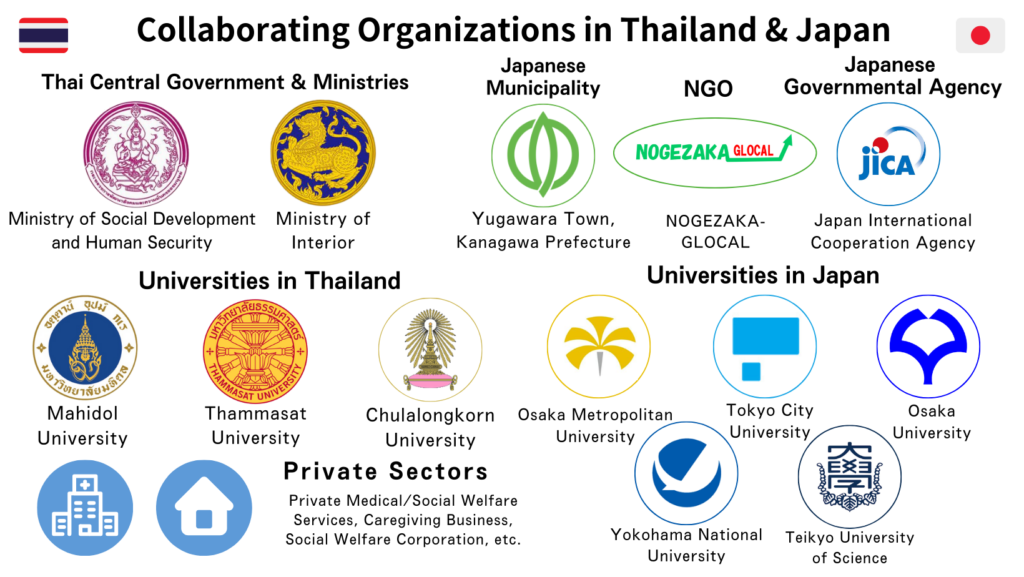
In detail, there are local authorities in Thailand that have signed the MOU (Memorandum of Understanding) to participate in collaborative works for promoting each area’s Community-based Integrated Elderly Care through the SMART & STRONG Project. The number of local authorities was originally 9 when this project started in August 2022, and the number has increased to 26 since July 2023. These local authorities are the main actors in this project to have ownership of building up elderly care initiatives in ways suitable in each area. Residents in these communities, including not only senior citizens but also their families, neighbors, caregivers, medical/healthcare professionals, and whole community members, are the final beneficiaries of this project. Thai local authorities are expected to promote the active participation of each resident and introduce residents’ needs to their initiatives.
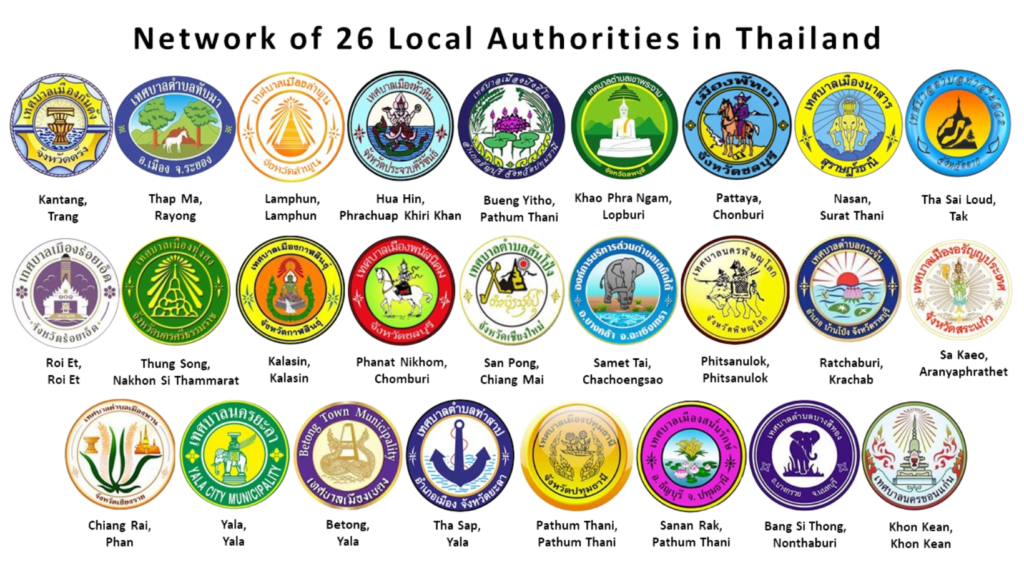
By expanding the Thai local authorities’ network, this SMART & STRONG Project aims to create the bases that local authorities can sustainably share and autonomously promote Community-based Integrated Care policies and actual practices within the network throughout the whole of Thailand. There are ideas to prevail this network and mechanism of sharing know-how on this project’s platform with other countries surrounding Thailand, such as Cambodia, Laos, Malaysia, Myanmar, etc.
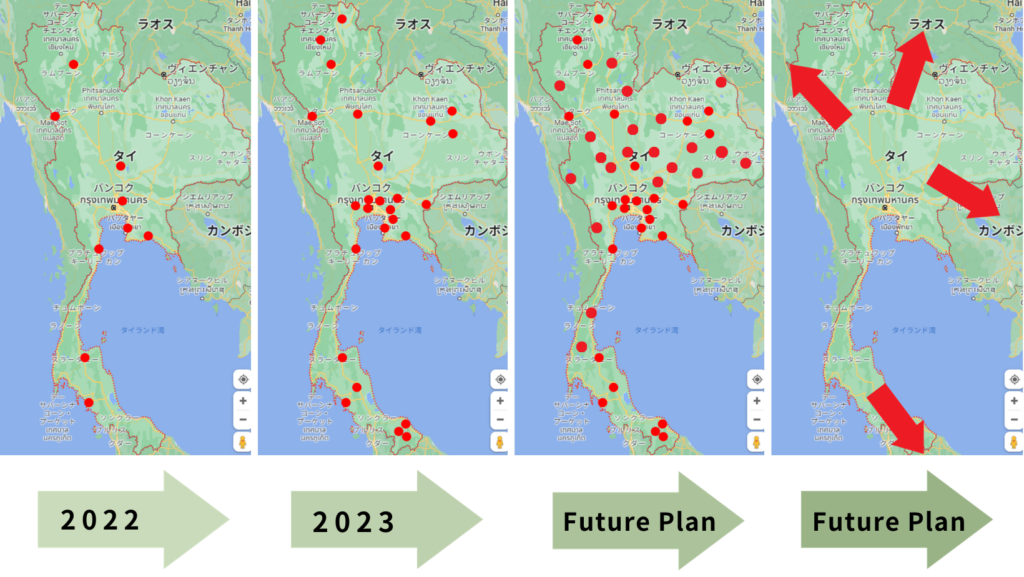
Mutual Learning and Development
In Thailand, the average life expectancy is rising due to improved medical care and the declining of birthrate, resulting in a rapidly aging population. While the care of the elderly has traditionally been provided mainly by informal care (such as families and communities), the enhancement of sustainable social security systems and mechanisms (Socialization of Elderly Care, Formal Care Services, etc.) has become important these days. With the Thai central government's national plan, Community-Based Elderly Care is considered one of the measures to tackle more aged societies in the near future by introducing both informal care tradition and formal care promotion.
On the other hand, Japan is one of the most super-aged societies in the world and has a longer history with accumulated know-how on establishing and managing social security systems (long-term care insurance, pension system, etc.) and elderly care services, mainly based on nursing facilities. However, with the increasing aged population and the decreasing working-age population, Japan faces large challenges in maintaining the existing systems and services with limited human resources and cost finances. Reflecting the expanding need for receiving care in their own homes and communities where senior citizens are used to living rather than in nursing facilities, Japanese-style Community-based Integrated Care has been further promoted recently.
Based on these similarities and differences in elderly care contexts between Thailand and Japan, this SMART & STRONG Project promotes Mutual Learning of know-how in each context and Mutual Development for making innovative solutions by introducing new know-how and fresh perspectives from the outside of the belonging community, country, policy, cultural sphere, etc.
In addition, it is expected to promote mutual learning and development within local authorities in Thailand domestically as well through the network of Thai local authorities.
To date, this project has produced a number of results in mutual learning and development. For example, the implementation of "Dementia Cafes" in individually unique ways at three local authorities in Thailand originally reflected the Dementia Cafe activities in Japan through Thai municipality officials' training and visits to Japanese community-based elderly care sites.
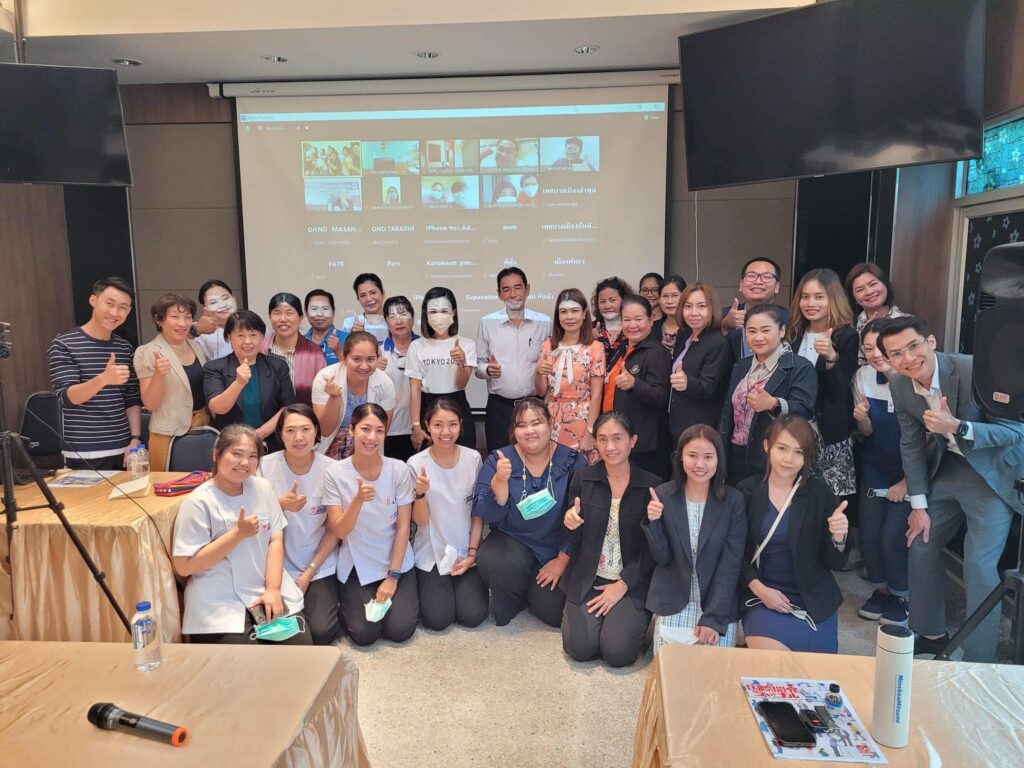
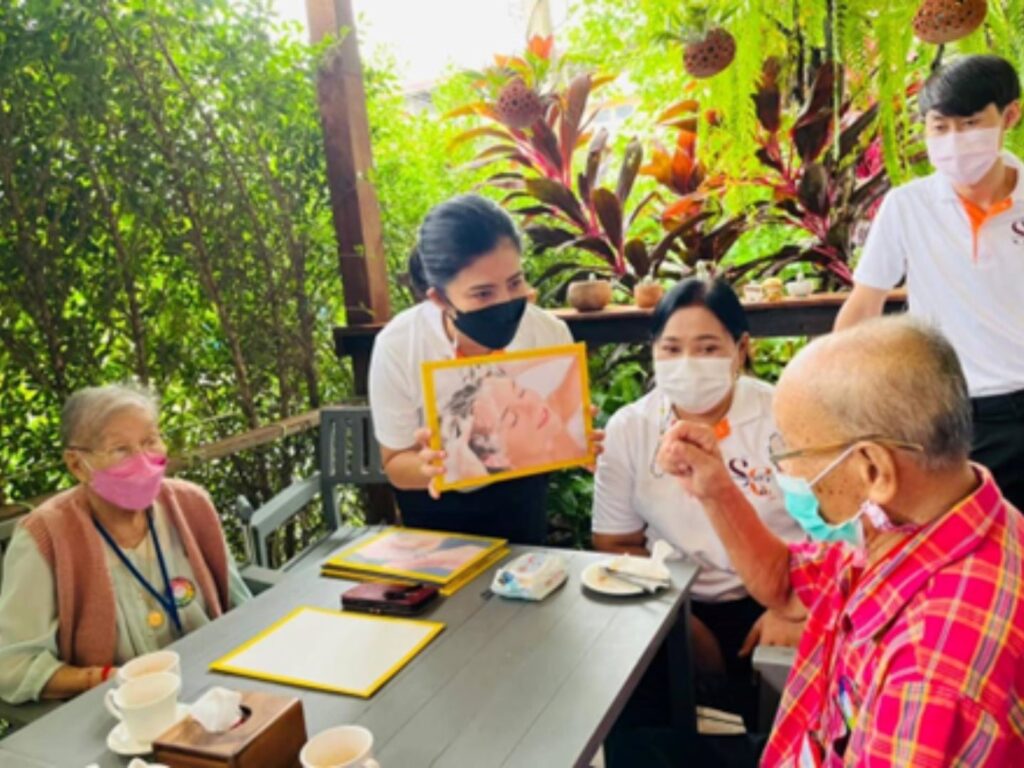
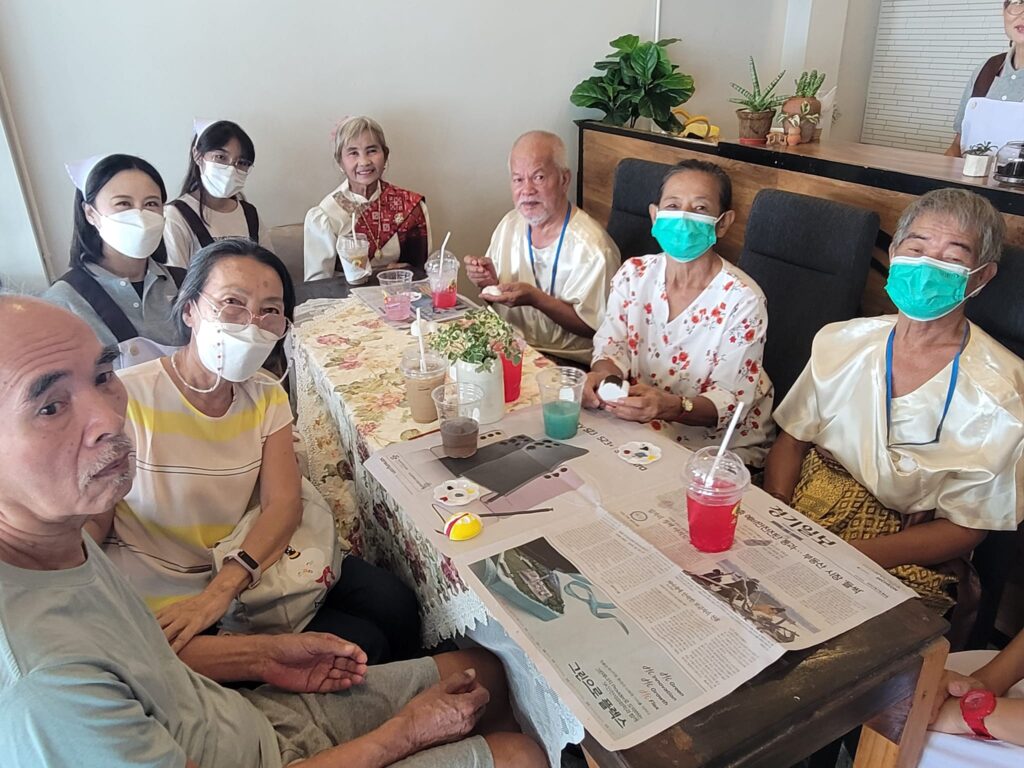
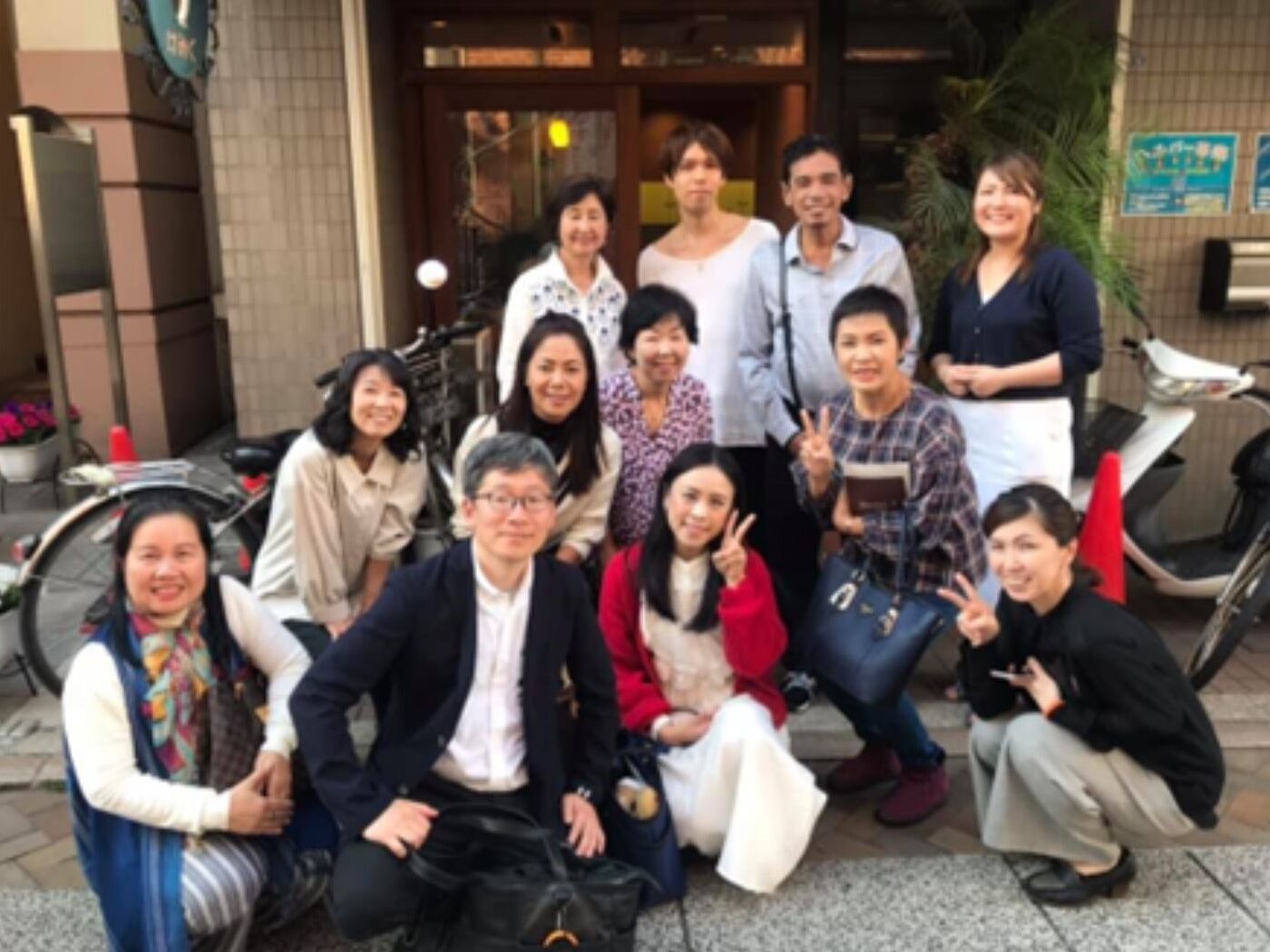
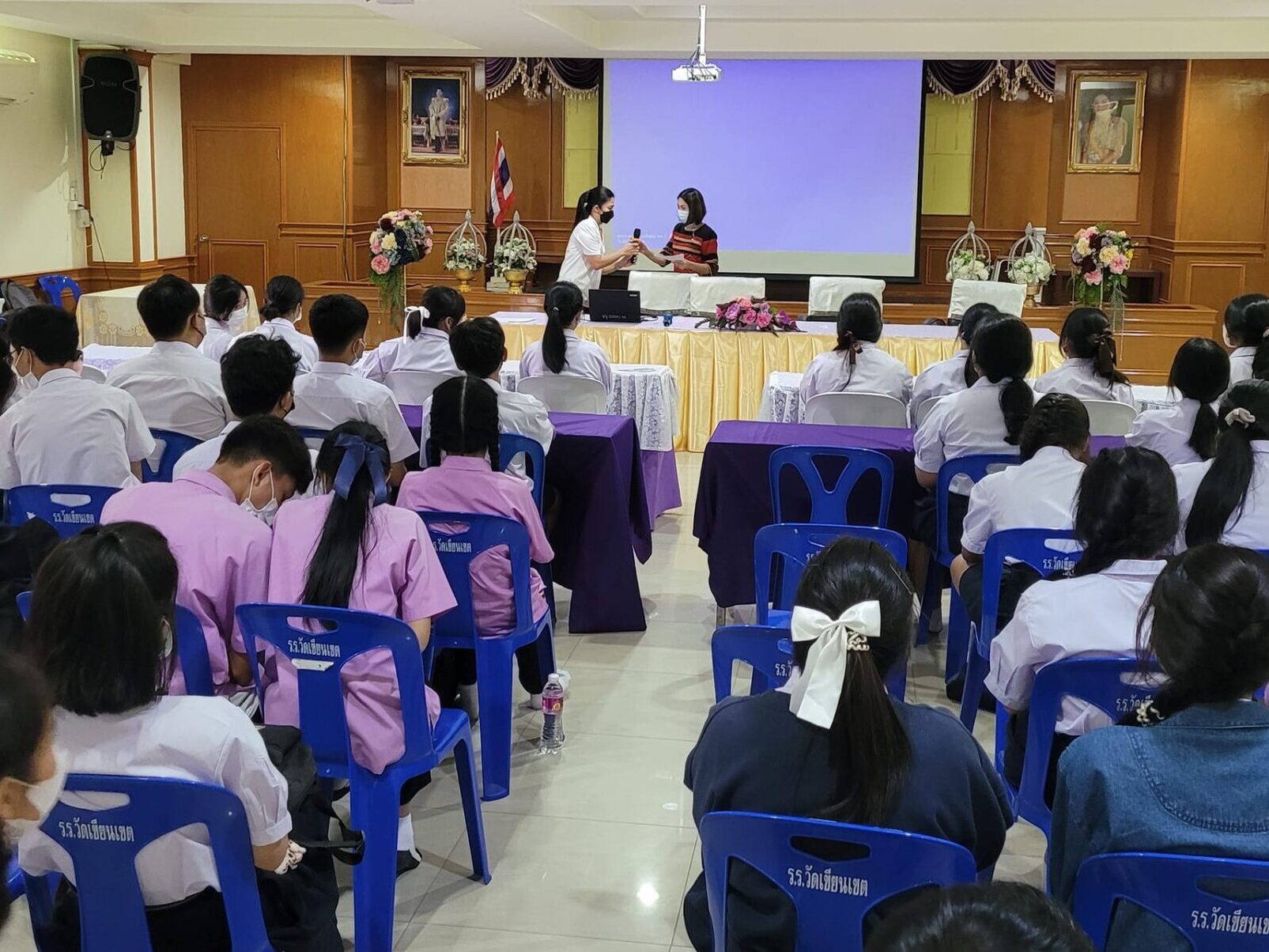
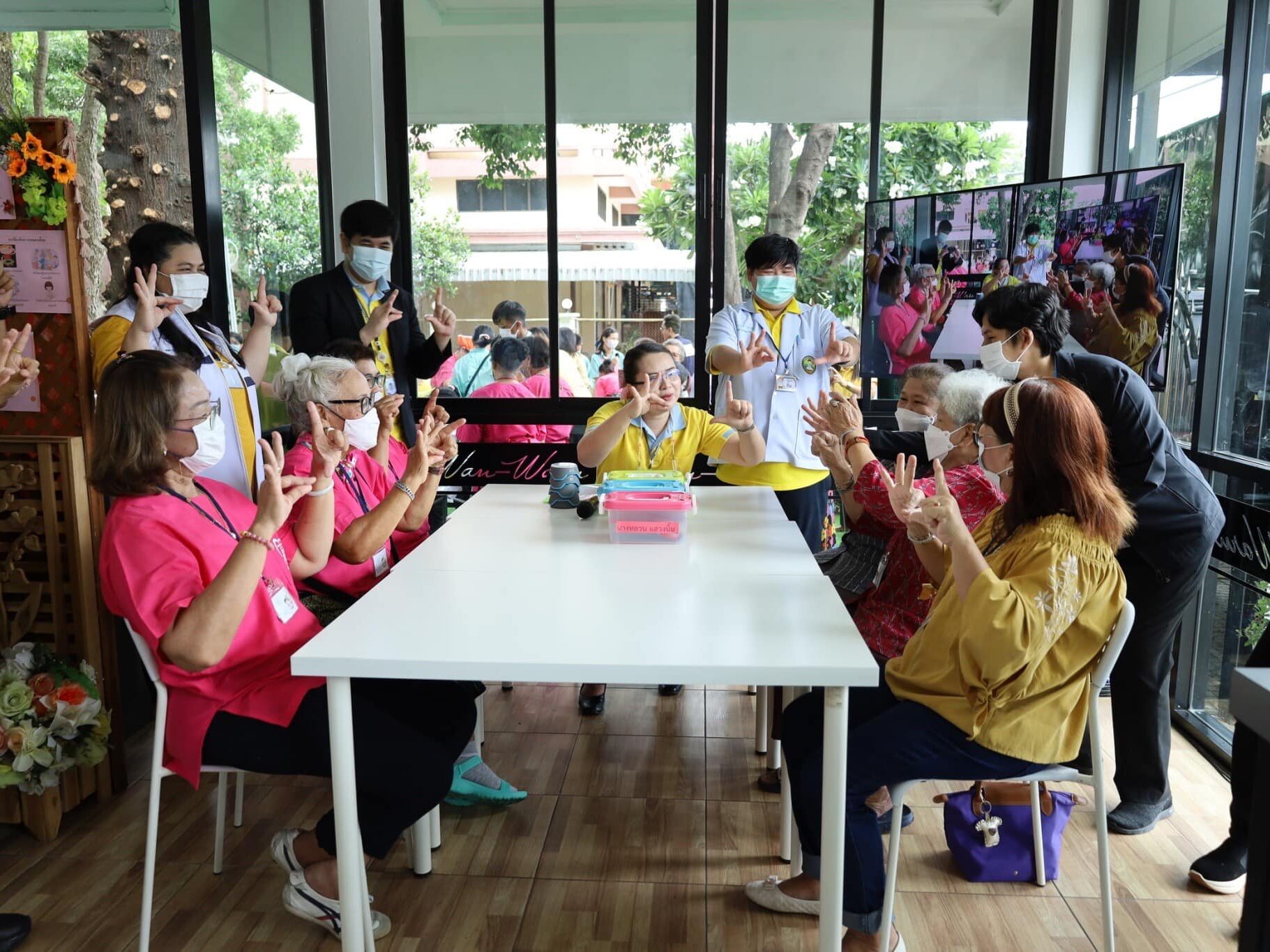
In addition, know-how on one municipality's achievement in the Day Care Center's establishment and management, including information on the center's functions/roles, cost-finances/budget management, care management, rehabilitation equipment, etc., has been shared among Thai local authorities' network. Reflecting the know-how from the initial case, two more municipalities have also built each Day Care Center.
